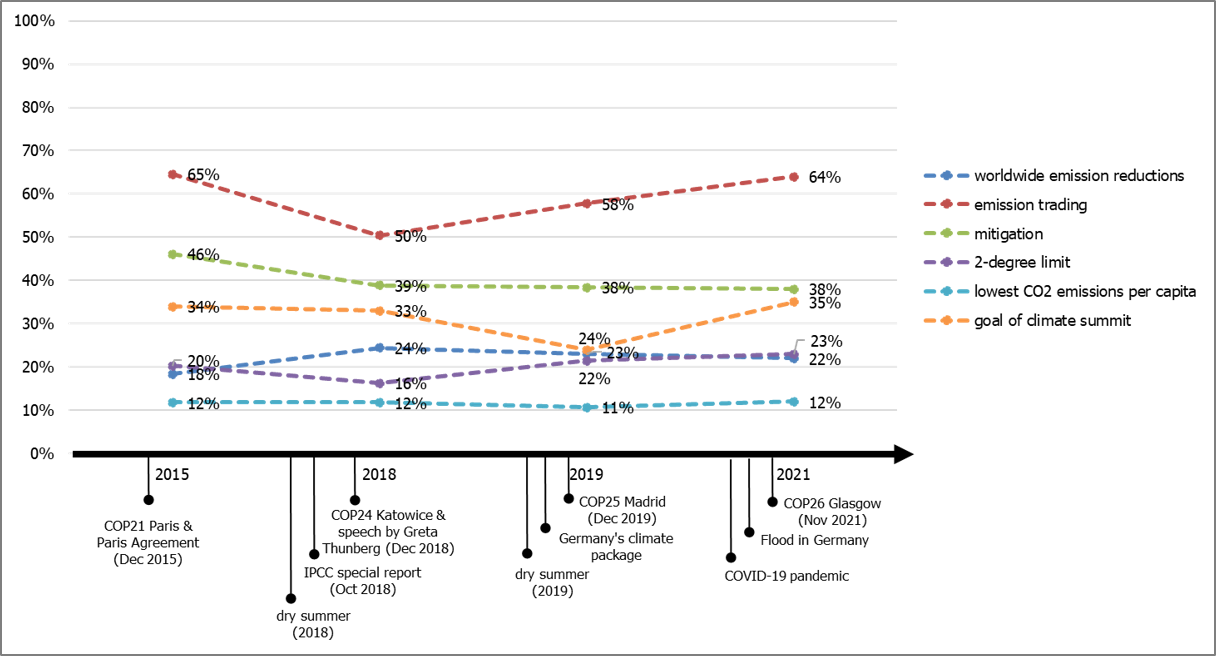
How to mobilize citizens, politicians and companies for climate action? Often, knowledge about climate change – or more precisely, a lack of knowledge – is seen as a crucial factor. Basic facts on climate change and climate politics are indeed unknown to a large share of the population. However, ‘educating the public’ is not as easy as one might think – and may even be not that crucial for climate protection. Here’s what I’ve learnt from studying the topic for almost a decade.
When I started my master’s thesis in 2014, I had a traditional model of science communication in my mind: information about scientific and political topics is spread, e.g. by the media, so that the people can learn from it and fill in their “knowledge deficit” (see e.g. Tayeebwa et al 2022). Then, the new knowledge leads them to rethink their attitudes and change their behaviour. Since then, I’ve learnt not only that this model is outdated, but also that human learning and behaviour is much more complex.
In my dissertation (De Silva-Schmidt 2021), I’ve analysed the German population’s knowledge about climate politics with a longitudinal survey undertaken during COP21 in Paris, 2015. Later, our team extended this survey such that we could track public knowledge on core climate issues up until 2021.
Our data show that public knowledge about climate change is quite stable over time – and at a somewhat low level. For example, less than a quarter of survey respondents were able to identify the correct explanation for the 2-degree limit, or knew that we haven’t yet managed to significantly reduce worldwide emissions.

Neither big political events, nor natural disasters, nor any other kind of external events seem to have an impact on levels of public knowledge, even as climate politics have been brought increasingly into our society’s focus in recent years.
So why are there no gains in public knowledge?
In my dissertation, I also analysed possible explanations for this lack of gain in knowledge. First, results show that media coverage – the first and only source of information on this topic for many people – does not convey basic information; instead, reporting focuses on events such as climate conferences. Second, basic school education on climate change has only recently been integrated into curricula, and is still often patchy. Third, learning is very dependent on interest: people who are not interested in the topic of climate change are unlikely to learn (much) from climate change reporting.
Reasons for optimism
But here’s some good news: interestingly, many studies have shown that knowledge does not link directly to attitudes and behaviour (see e.g. Knutti 2019, Shi et al. 2016, Whitmarsh et al. 2021, Venghaus et al. 2022).
While this disconnect between knowledge on one side and attitudes and behaviour on the other side can lead to denial and inaction, it also means that public climate knowledge is not a direct prerequisite for climate action. Instead, working on people’s attitudes might be a more effective approach than trying to provide them with sufficient information.
And luckily, there are ways to combine both approaches: personal discussions, for instance, have shown to be able to enable learning, but also to change people’s attitudes – depending on the relationship between the conversational partners (as mentioned before – it’s complex). As always in media/communication effects studies, there is no one-size-fits-all solution. But that does not mean that spreading information, enabling learning and getting people to rethink their attitudes do not have a significant effect.